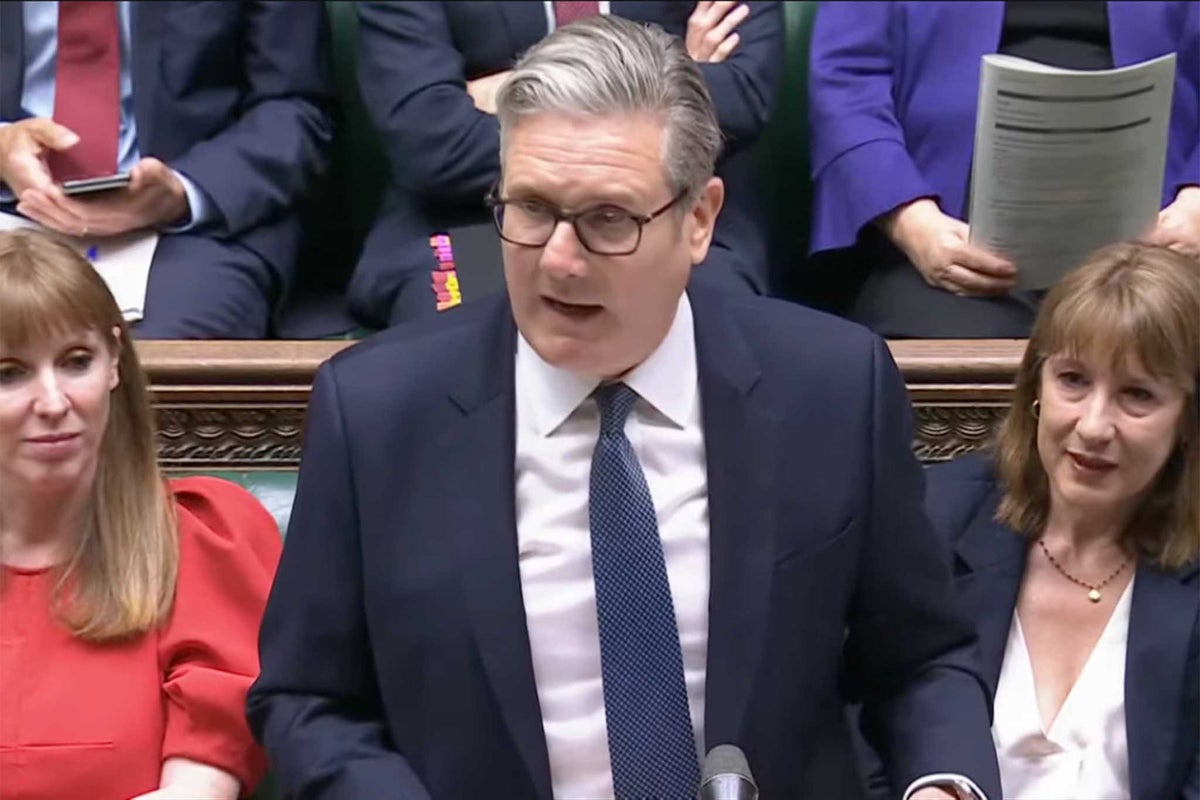Battered by Labour MPs, Keir Starmer is on the ropes after the government’s humiliating climbdown on welfare reform.
One black eye came last week when ministers exempted existing claimants from cuts to the personal independence payment (PIP). Last night, Starmer suffered a bloody nose when he had to shelve changes to PIP to prevent the legislation being defeated. The government’s planned savings of £5bn have been reduced to nothing.
Starmer looks incapable of persuading Labour MPs to swallow the “tough decisions” he promised. The danger now is paralysis and the prime minister looking, as Norman Lamont said of John Major, “in office but not in power”. Starmer must somehow stop the backbench tail wagging the government dog. He needs to restore his bark, let alone his bite.
Rachel Reeves, the chancellor, must fill a big black hole in her Budget in the autumn – and this time she won’t be able to blame the Conservatives. Her £9.9bn of headroom against her fiscal rules has evaporated: she must find £5bn for disability benefits; £1.25bn for the U-turn on winter fuel payments; and an estimated £4bn for lower-than-expected economic growth. Starmer wants to scrap the two-child benefit limit at a cost of £3.5bn, and Labour MPs now have the muscle to achieve it. Total cost: £13.75bn, just for starters.
With hindsight, it would have been better to have a wider welfare reform package this autumn. Labour MPs might have been willing to change disability benefits if some of the savings had been switched to tackling child poverty. I suspect this approach was favoured by Liz Kendall, the work and pensions secretary, but Reeves needed the money up front and imposed £5bn of cuts ahead of her spring statement in March to stick within her fiscal rules.
This deeply damaging episode highlights the flaws in those rules. Other cabinet ministers believe the chancellor is too rigid in responding to the twice-yearly forecasts by the Office for Budget Responsibility (OBR) on whether she is on track to meet the rules. Its forecasts are based on doing so in 2029-30 – and will almost certainly be changed by then.
The chancellor will not want to soften her rules, fearing an adverse reaction by the financial markets. But the gain in terms of fiscal responsibility is now outweighed by the political pain.
The International Monetary Fund has suggested one OBR forecast a year, instead of two – which would dovetail with Reeves’s decision to have only one fiscal event, the Budget, and having the flexibility to narrowly miss the rules to avoid knee-jerk policy responses. Some Downing Street figures are open to reform.
There is a way out of the government’s fiscal quagmire. It should appoint a commission of independent experts to look at reforming Reeves’s rules. Obvious candidates would include Paul Johnson at the Institute for Fiscal Studies (or his successor Helen Miller); Ruth Curtice at the Resolution Foundation (the Treasury’s former director of fiscal policy); and Andy Haldane, the former chief economist at the Bank of England. If they recommended reforms, Reeves would have the cover to make them without upsetting the markets.
For good measure, the commission should look at tax as well as borrowing. Starmer wants to make the next election a choice between a progressive Labour Party and the right-wing populists of Reform UK. But the welfare debacle shows that Labour cannot govern in line with such values: it is hamstrung by the fiscal rules and its manifesto promise not to raise income tax, national insurance for employees or VAT. The tax pledge was a useful campaign tactic but should not have been elevated into a governing philosophy. Labour needs to get off this hook of its own making.
A commission could review whether the tax promise has been overtaken by events – notably, the need to boost defence spending. Starmer has signed up to raising it from 2.3 per cent to 5 per cent of GDP by 2035, without saying how the £30bn cost will be funded. Perhaps a commission would propose an earmarked “defence tax”, or “security tax”.
An inquiry could be done in months. We have been here before. As chancellor, Gordon Brown appointed the banker Derek Wanless to look into NHS spending. His inquiry paved the way for Brown to raise national insurance contributions by 1 per cent in 2002, to raise the health budget to the European average. It saved the NHS, and is the only popular tax rise I can remember.
Reeves, an admirer of Brown, should adopt his “something for something” mantra – taxes need to go up, but voters will rightly want something in return, in this case, a secure nation in an increasingly dangerous world. Raising taxes for defence would leave more money to improve other public services, without which Labour will struggle to win a second term.
Starmer hasn’t yet suffered a knockout blow. But unless he breaks free of his manifesto’s shackles, he will lose on points. There is still a way for him to land some blows and get back in the match.






